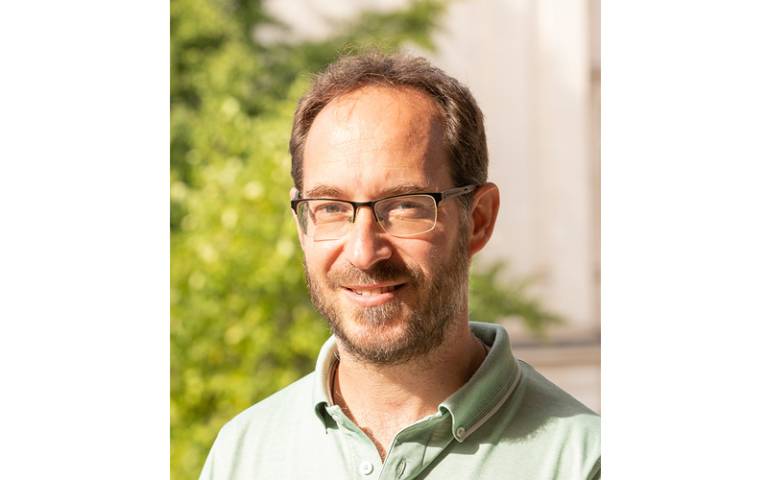Meet the Expert: Dr Denes Stefler, Co-Director, Online MPH
5 May 2023
Dr Denes Stefler tells us about his career in medicine and why he has pursued a career in public health and epidemiology.

Which programme do you lead?
The online Master of Public Health
Whats your background and career so far?
I was originally trained as a medical doctor, but after two years of working as a clinician I moved to academic public health and started doing research and teaching in this area. I joined UCL in 2010 as an MSc student, then went on to complete a PhD in nutritional epidemiology. Between 2015 and 2022 I worked as a research fellow with the Central and Eastern European Health Research group at the Institute of Epidemiology and Health Care. Currently, I am a lecturer in epidemiology and co-leading the online Master of Public Health programme.
Why did you choose to pursue your subject area and areas of research?
I find public health fascinating because in this discipline I have the opportunity to examine health and disease from an overall population-level perspective. It is great when you like to think about the “big-picture”. Epidemiology, in particular, is sometimes like a real detective work. We investigate the evidence, looking for clues and patterns in order to understand the causes of various diseases.
What would be your advice to those interested in pursuing postgraduate education?
Go for it! Postgraduate taught courses provide a more in-depth knowledge to a particular field than what you have learned during your undergraduate studies. It is like digging deeper in a specific area that you are interested in. These courses open the door to various professions and research, and equip you with the tools and skills that are essential for further progression in your career.
What do you find interesting about leading your programme or teaching on your modules?
It is great to meet people from all over the world. The online format of our MPH programme makes it possible to have really exciting conversations during our live classes. People literally from all continents can “sit” in the same room together, bringing in their own perspectives and experiences to the table.
What drew you to UCL?
I remember when I joined UCL as an MSc student back in 2010, one of the main reasons why I chose this university was because the Epidemiology and Public Health department looked more friendly than the other places I considered. I have to say that over the last 13 years, this initial impression has not changed, and I have always found the staff (who are my colleagues now) approachable and supportive.
What are the benefits of studying your programme?
The online MPH is a great opportunity to study at UCL and become a “master” of public health without the need to relocate. You will get access to all the expert knowledge and facilities available at UCL, and you will learn from internationally well-known public health leaders. I think, getting to know other students on the programme who work/live in various regions of the world and have similar interest in public health is another important benefit. The connections, perhaps even friendships, that you develop throughout the year can last for a very long time.
What career routes could students on your programme consider after graduating?
Public health is a field that attracts people with all kinds of backgrounds, and also offers a wide variety of career opportunities. You may end up working for public health offices on local, regional, national or international level, NGOs, private companies, or you may stay in academia to do research. The list of opportunities is very long. The interest in various type of employers to hire individuals with public health knowledge has become particularly prominent after the Covid-19 pandemic.
What advice would you give to incoming students on your course?
Make sure that you have the time to engage with the learning content during the course. Apart from the live online sessions, we also provide you learning materials that you will need to go through in your own time. Fully engaging with both types of learning activities is really important if you want to have a great MPH experience and you look for a comprehensive understanding of the various topics that we go through.
Do you have any recommendations of resources for anyone interested in your programme?
I'd recommend the Twitter feed of Sir Michael Marmot. In terms of books, I`m biased towards Epidemiology: Gordis Epidemiology 6th Edition.
Where is home for you?
I`m originally from Hungary, but have been living in London for more than a decade. I feel at home in both places. However, when it comes to food, my taste buds definitely feel more at home in the Hungarian cuisine.
 Close
Close

